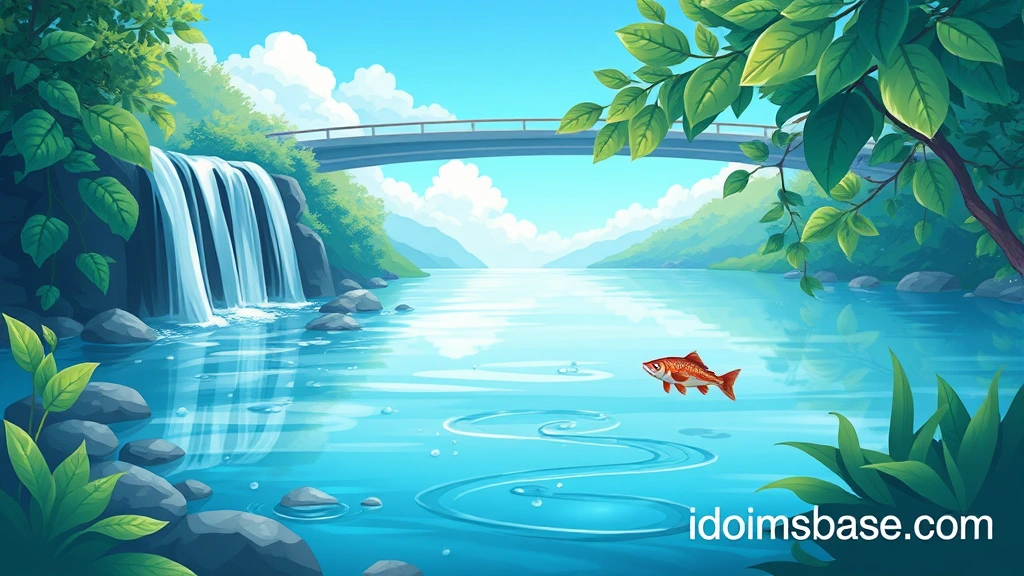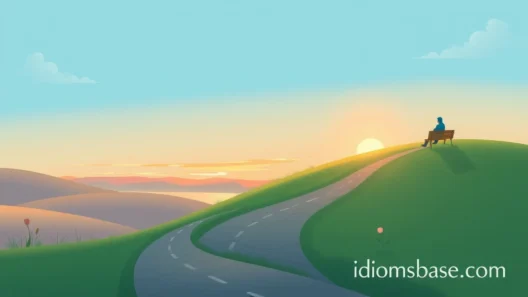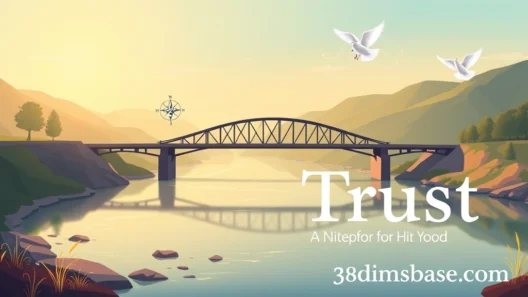Have you ever stopped to think about how much water influences our language and how we describe the world? It's truly incredible! Water, in all its forms, is a universal symbol, a source of life, and a powerful force. Because of its constant presence and diverse nature, it has become a wellspring of metaphors. These aren't just fancy words; they’re little windows into how we understand complex emotions, ideas, and experiences.
From a gentle trickle to a raging flood, water offers endless ways to articulate the human condition. It’s fluid, adaptable, powerful, and sometimes, even destructive. Ready to dive deep into the fascinating world of metaphors? Let’s explore 38 incredible ways we use water to paint vivid pictures with words. You’ll be amazed at how often these metaphors pop up in everyday conversation, literature, and even your own thoughts!
The Flow of Life: Metaphors of Movement and Change
Water is always moving, always changing. This makes it a perfect stand-in for life's journey, its ups and downs, and the constant evolution we all experience.
- Life is a river: This classic metaphor suggests that life moves forward, sometimes smoothly, sometimes with rapids, always progressing. You can't step in the same river twice, just as you can't live the same moment twice.
- A flood of emotions: When feelings overwhelm you, they can feel like a sudden, unstoppable rush, much like a powerful flood. Think about that moment when joy or sadness just washes over you.
- To go with the flow: This means adapting to circumstances, not resisting what comes your way. It’s about being flexible and letting things unfold naturally, just like a twig carried effortlessly by a gentle current.
- A current of change: Change isn't always sudden; sometimes it's a steady, underlying force, much like an ocean current that subtly shifts temperatures and marine life across vast distances.
- Ripples of influence: A small action can have far-reaching effects, spreading out like ripples from a stone dropped into a pond. Your kindness today might inspire someone else tomorrow, creating a beautiful chain reaction.
- Washing away sins/troubles: Water is often seen as a purifier, capable of cleansing. This metaphor speaks to the act of forgiveness, letting go of past mistakes, or finding solace after hardship.
- Drowning in sorrow/debt: When something becomes overwhelming, it can feel like you're submerged and can't breathe. This vivid image captures the immense pressure and helplessness.
- Treading water: This means struggling to stay afloat, just barely managing to cope in a difficult situation. You're not sinking, but you're not moving forward either.
- Making waves: To "make waves" is to cause a stir, to create a noticeable impact, often by challenging the status quo. It implies disruption, but also potential for positive change.
- Stemming the tide: This means trying to stop or slow down a powerful, overwhelming force. It’s often used when attempting to prevent something inevitable or very difficult to control.
- A sea of faces: When you see a huge crowd, it can look vast and undifferentiated, much like the seemingly endless expanse of the ocean.
- The wellspring of creativity/inspiration: A wellspring is a source of water, often continuously flowing. Metaphorically, it's where new ideas or inspiration originate, a deep and constant supply.
Depths and Mysteries: Metaphors of the Unseen and Profound
Water, especially deep water, holds secrets. It represents the unconscious, the unknown, and things that are hidden beneath the surface.
- Deep waters: This refers to complex, serious, or dangerous situations. It suggests that there’s more than meets the eye, and navigating it requires careful thought.
- Still waters run deep: People who are quiet and reserved often have profound thoughts or emotions beneath their calm exterior. Don't judge a book by its cover, or a person by their silence!
- To plumb the depths: This means to explore or understand something thoroughly, to get to the very bottom of an issue or a feeling. It implies a deep and comprehensive investigation.
- A drop in the ocean: This signifies something very small and insignificant in the context of a much larger situation. Your single complaint might be a drop in the ocean compared to the millions of customers.
- The tip of the iceberg: Only a small part of a much larger problem or situation is visible, with the vast majority hidden beneath the surface. What you see is just the beginning.
Force and Power: Metaphors of Strength and Impact
Water can be incredibly powerful, shaping landscapes and demonstrating unstoppable force. These metaphors reflect that immense strength.

- A tidal wave of support/protest: A sudden, overwhelming surge of something, much like a massive ocean wave. It implies a huge, collective movement.
- To be swept away: To be completely overcome or overpowered by something, losing control. This can be positive (swept away by love) or negative (swept away by debt).
- To make headway: To make progress, often against resistance, like a ship pushing through waves. It implies effort and determination.
- To be on thin ice: To be in a precarious or risky situation where a wrong move could lead to trouble. Just like actual thin ice, it's unstable and dangerous.
- Breaking the dam: This signifies breaking through a barrier that was holding back a powerful force, often emotions or ideas. It implies a sudden, often dramatic release.
- A torrent of words: A rapid, overwhelming flow of speech, often continuous and difficult to interrupt. Imagine someone talking non-stop with incredible speed.
- The floodgates opened: This refers to a sudden and overwhelming release of something that was previously held back, often emotions like tears or anger.
- Weathering the storm: Enduring a difficult period and coming out of it. Like a ship surviving a tempest, it speaks to resilience and perseverance.
Scarcity and Abundance: Metaphors of Resources and Need
Water is essential for life, and its presence or absence profoundly impacts existence. These metaphors highlight themes of resources, need, and sustenance.
- A thirst for knowledge/adventure: A strong desire or craving for something, much like the physical need for water. This implies a deep-seated longing.
- Water under the bridge: This means past events or issues that are no longer important or relevant. They've passed and can't be changed, so it's best to move on.
- To hold water: For an argument or statement to "hold water" means it is sound, logical, and stands up to scrutiny. It doesn't leak or fall apart.
- Blood is thicker than water: This proverb emphasizes that family loyalties and bonds are stronger than other relationships.
- Watering down (an idea/statement): To weaken something, to make it less potent, strong, or clear. Imagine diluting a drink with too much water.
- Pouring money down the drain: Wasting money on something that yields no benefit or is a complete loss. It’s like watching your resources disappear for no good reason.
- In hot water: To be in trouble or a difficult situation. This implies being in a predicament that feels uncomfortable or dangerous.
- To test the waters: To try something out cautiously before committing fully. You're checking the temperature before diving in headfirst.
- To keep your head above water: To manage to survive financially or emotionally, just barely avoiding failure or ruin. You're staying afloat despite difficulties.
- Like a fish out of water: Feeling uncomfortable, awkward, or out of place in a situation or environment that is unfamiliar.
- As clear as mud: Something that is not clear at all, but rather confusing or incomprehensible. It's an ironic phrase, playing on the idea of clarity.
- To be the calm before the storm: A period of unusual quiet or peace that precedes a time of great trouble or upheaval. It’s a moment of deceptive tranquility.
- Fathoming something: To understand something deeply, often something complex or mysterious. A fathom is a unit of depth, so it means reaching the bottom of an understanding.
Key Takeaways

- Water metaphors are everywhere, enriching our language and helping us express complex ideas.
- They often describe movement, change, and the flow of life's experiences.
- Water can symbolize both immense power and subtle influence.
- Metaphors related to water also touch upon themes of depth, mystery, scarcity, and abundance.
- Understanding these metaphors can deepen your appreciation for language and communication.
Frequently Asked Questions (FAQ)
Q1: Why are water metaphors so common in English?
Water is fundamental to life and constantly present in our environment, from rain to rivers to oceans. Its diverse properties – fluidity, power, depth, ability to cleanse, and necessity for survival – make it a rich source of analogy for human experiences, emotions, and concepts. It’s universally understood, making it an effective tool for communication.
Q2: Can water metaphors be used in both positive and negative contexts?

Absolutely! Water metaphors are incredibly versatile. For example, "a flood of emotions" can describe overwhelming joy or overwhelming sorrow. "Making waves" can mean causing disruptive trouble or initiating positive change. The specific context and surrounding words determine whether the metaphor carries a positive or negative connotation.
Q3: How do metaphors for water enhance communication?
Metaphors, especially those involving universally recognized elements like water, make communication more vivid, memorable, and impactful. They allow us to convey abstract ideas in concrete, relatable terms. Instead of simply saying "I was very sad," saying "I was drowning in sorrow" paints a much more powerful and evocative picture, allowing the listener to better grasp the intensity of the emotion.
Q4: Are these water metaphors unique to the English language?
While the specific phrasing might differ, the underlying concepts behind many water metaphors are universal across cultures and languages. The idea of life as a river, emotions as a flood, or purification by water can be found in various forms in many linguistic traditions, reflecting common human experiences and observations of nature.
Q5: How can I use these water metaphors in my own writing or speaking?
Start by observing how others use them. Then, when you're trying to describe a feeling, a situation, or a process, ask yourself if a water-related image could make your description more powerful. Instead of saying "things are difficult," try "we're in deep waters." Instead of "I'm trying to survive," consider "I'm just treading water." Practice makes perfect, and soon you'll be weaving these metaphors into your language naturally!
We hope you’ve enjoyed this refreshing dip into the world of water metaphors! Isn’t it amazing how a single element can inspire so much linguistic creativity? Next time you see a river, a puddle, or even just turn on the tap, you might just hear the echoes of these powerful expressions. What’s your favorite water metaphor, and how has it helped you express something profound? Share your thoughts – we'd love to hear from you!






